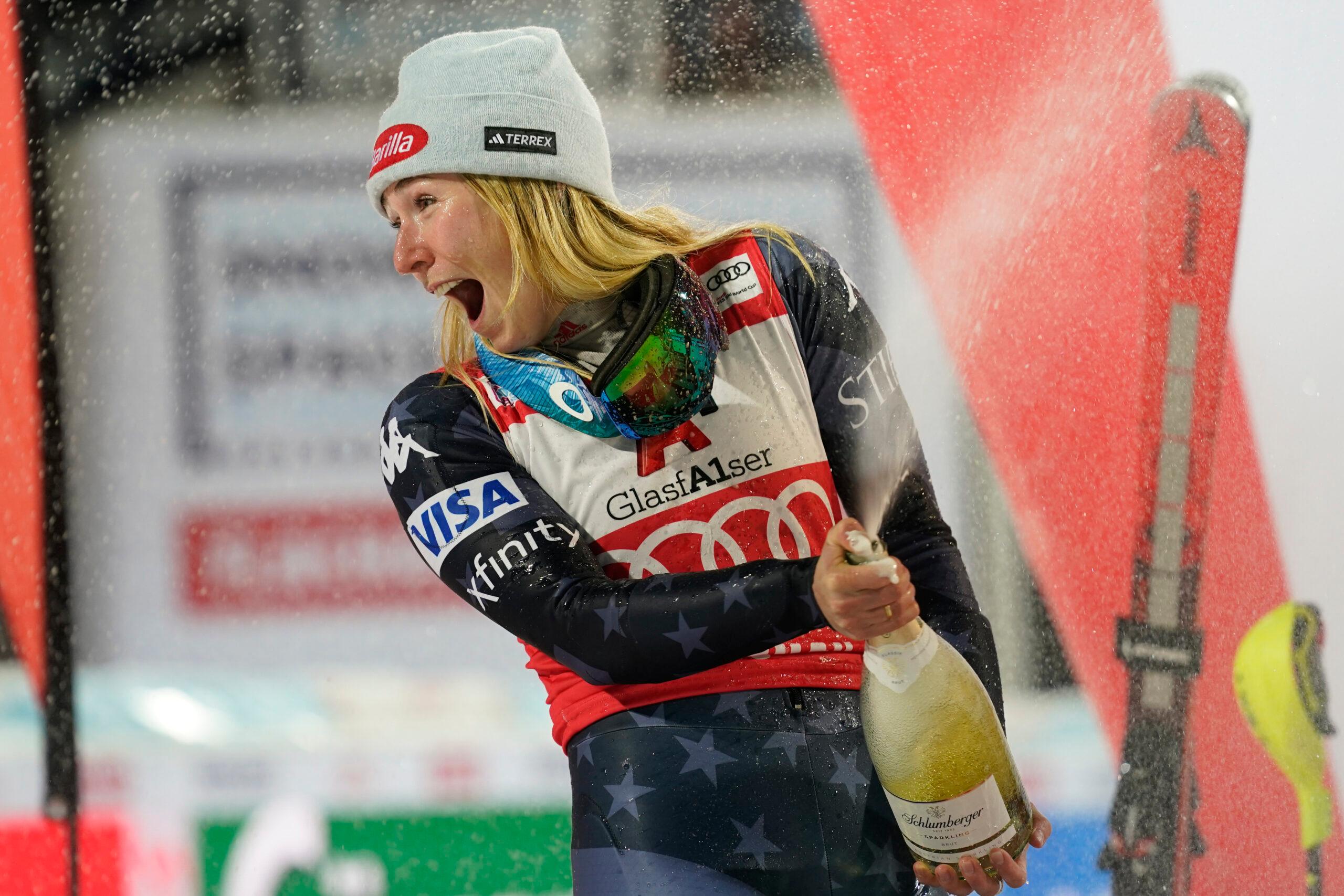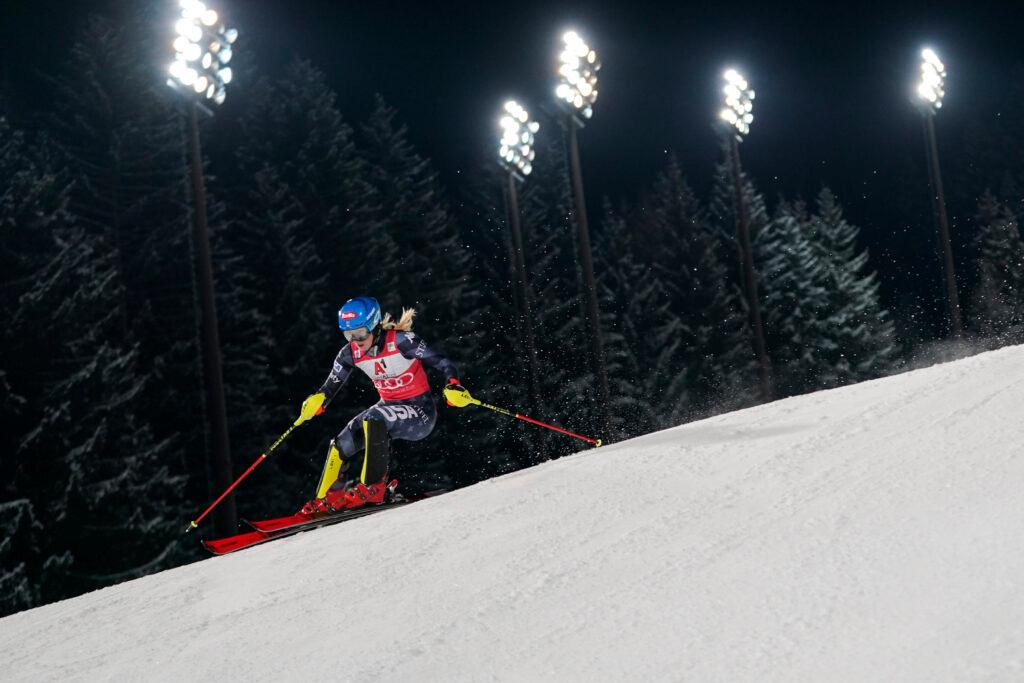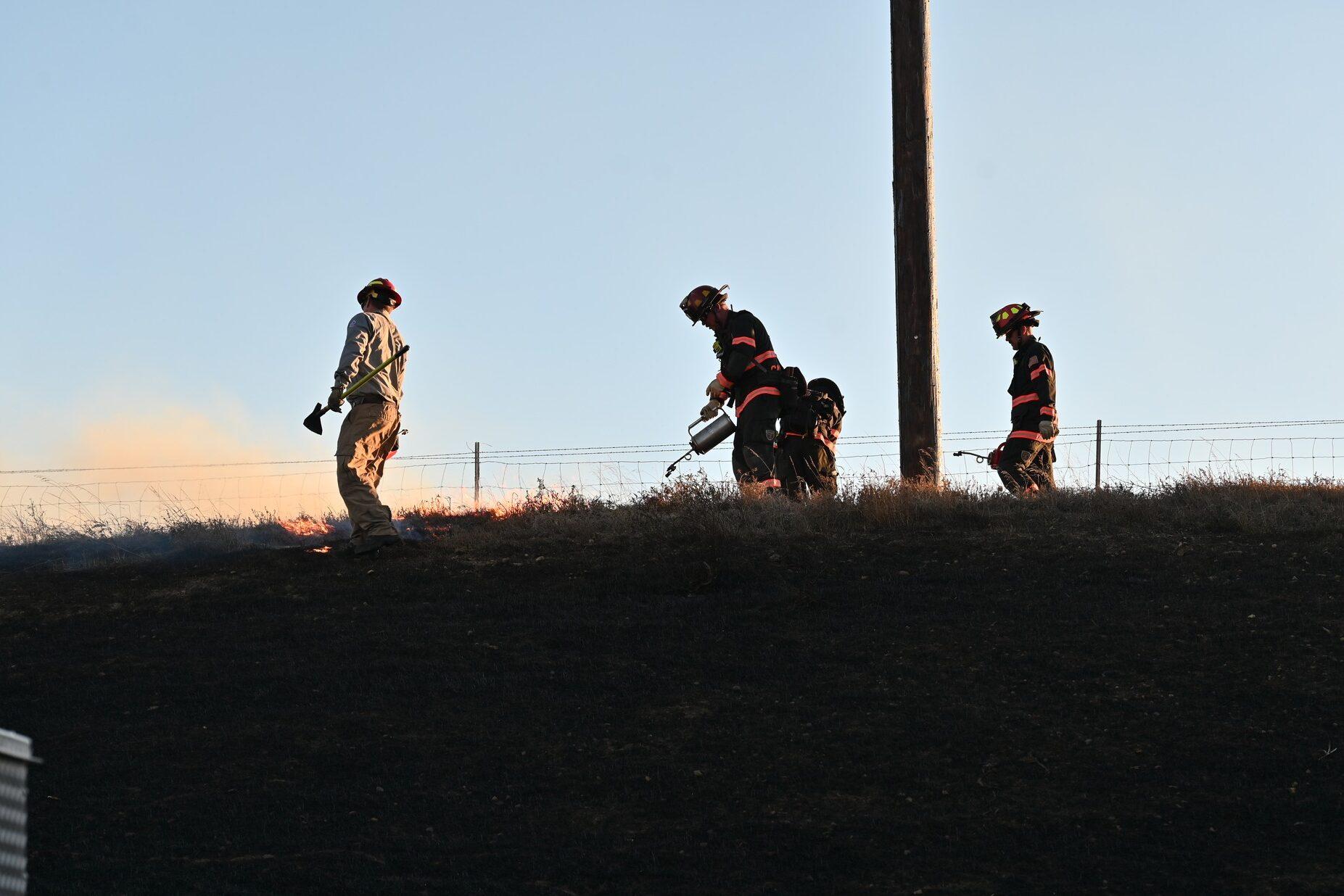
By John Henderson, reporting this story from Flachau, Austria.
Mikaela Shiffrin’s comet streaking across the Alps for the past month lost a bit of steam here Tuesday night. It hardly crashed and burned. In fact, her rising star as the greatest women’s World Cup skiing champion in history is shining as bright as ever.
But her quest to break her tie with Lindsey Vonn atop the women’s World Cup wins list was delayed, however, temporarily. Before a rousing, packed crowd waving dozens of Slovakian flags, Shiffrin finished second in the slalom here to Slovakia’s Petra Vlhova, who clocked 1:51.95, beating Shiffrin by .43 of a second.
Under the circumstances, Shiffrin's runner-up finish was nearly as remarkable as her eight wins this season. Megan Harrod, her public relations rep, said Shiffrin was sick all day. She felt queasiness in her stomach after the first run and threw up after her TV interview following her second run.
When this season ends, it will be a mere footnote that few besides her will remember. Besides the eight races she's won already, she has won six of her last eight and is making a mockery of the overall World Cup standings. This comes one year after the sports world wept when she crashed through the Beijing Olympics with no medals in six races, including three Did Not Finishes.
More importantly, it comes three years after her father's death, an event that left her teetering on the precipice between greatness and quitting.
This season has pumped up numbers that are topping those in most other sports. To wit:
- Her 82 wins are tied with Vonn, but Vonn retired four years ago at 34, seven years older than Shiffrin.
- Vonn achieved her 82 wins in 395 races. Shiffrin did hers in 233.
- Next down the list is Austria’s Annemarie Moser-Proll (1969-80) with a distant 62.
- Even farther in the rearview mirror is the next highest on the active list: Switzerland’s Lara Gut-Behrami, who’s four years older than Shiffrin and has only 35.
- Next in Shiffrin’s sights will be the men’s record of 86 by Sweden’s Ingemar Stenmark (1974-89).
Unlike Stenmark, who compiled all his wins in slalom and giant slalom, like Vonn, Shiffrin has wins across the skiing spectrum: 51 slalom, 17 giant slalom, five Super G, three downhill, three city events, two parallel slaloms, one combined.
Think about this: In a sport where two seconds over two races can separate 30 skiers, Shiffrin has reached the top of the women’s win list and is just now reaching her peak.
It was 12 years ago when she made her debut. A 15-year-old Vail Valley school girl, she had no idea she’d be the face of international skiing for years to come.
“When I raced my first World Cup, the image in my head was winning my first World Cup race,” she said. “I was thinking, What would it feel like if I did that? Of course, I didn’t win the first World Cup that I raced. One of the things the race series taught me is I’m going to have to have patience in my career because I can be ambitious and work really hard but every single athlete on the mountain is actually doing the same thing.”
Shiffrin didn’t win her first two years on the circuit but in her 13th year, she has separated herself from her competition by not just hundreds of seconds. It’s an image of dominance that sounds almost psychological.
“She’s the best skier because she’s always there,” Italy’s Federica Brignone said after Shiffrin won Sunday’s giant slalom in Kranjska Gora, Slovenia. “ She’s always making her best performance. With her mind she’s so focused. She’s so present. Every run she can repeat almost her best. That’s the thing.
“She was almost perfect (Sunday). She was really into it. When she’s skiing like that, she’s unbeatable.”

Shiffrin is leaving her competition buried in six-foot snowdrifts. In those eight wins already this season, she won five in a row, starting Dec. 18 with a giant slalom in St. Moritz, Switzerland, and ending Jan. 4 in Zagreb, Croatia.
“I don’t know if I can put that in perspective,” she said. "Because coming into this season, realistically, I looked at last season, the season before and the season before that I had two victories, then, like, three then last season I had five. So I was thinking if I could match last season and maybe get five this whole season, then I could be proud of that.
“So for having five races in a row, it’s a little bit, yeah, hard to register.”
This isn’t just a story about the new queen of women’s skiing. It’s a comeback story. Many wouldn’t believe it in February when they took their turn every four years to follow skiing. The world watched the sport’s most dominant women’s skier compete in six Olympic disciplines and not win a medal to add to her two previous Olympic golds and one silver.
The Olympics represented rock bottom from a three-year spiral that started when her father died in a fall at home. It happened in February 2020, in the middle of Shiffrin’s season. She immediately flew home and fell apart. She couldn’t get out of bed. She couldn’t stop crying. She contemplated quitting.
To that date, she had two Olympic golds and a silver, six World Championships, 12 season individual race titles and four overall titles. That’s a pretty good career for a 25-year-old.
However, her brother, Taylor, gave her some tough love. He got her out of bed. He told her she couldn’t quit. What would her father say? He’d want her to keep racing. Keep winning.
She did. She had moderate success – for her. She won five times in 2021-22 wrapped around the Beijing bust.
Was her career at a crossroads? Not really. She still won the overall title that season. But she wasn’t dominating like she did in 2018-19 when she won a ridiculous 17 times in 26 races, topping the previous record of 14.
So during the offseason she did a video series for YouTube called “Moving Right Along.” It focuses on an attitude adjustment that she needed to get out of her, well, slump. In the video she said the most pertinent statement.
“Just because you fail doesn’t mean you’re a failure.”
In Kranjska Gora, she elaborated: “I don’t know a single person who hasn’t failed at least once in life or doesn’t regret something. You have to expect it in life no matter what you’re doing. It’s like knowing that at some point in life you’re going to fail compared to what you want to accomplish. You just have to know it’s going to happen and you have to be willing to work hard to then proceed again.”
When this season began, she hit the slopes already flying. She stopped worrying about winning and concentrated on her technique and tactics. The approaching records igniting the rabid, inquiring ski racing crowd be damned.
She won the season’s first two races in Levi, Finland. Then in December came the unprecedented five straight, a sixth place in the giant slalom Saturday in Kranjska Gora and then Sunday’s win.
“She’s starting to find clarity this year more than she has in three years,” said Eileen Shiffrin, her mother and coach. “Losing her dad … actually loss and grief form almost a PTSD which can affect someone’s ability to process, specifically, memorizing things clearly.
“She’s getting to where she was before her dad passed away.”
Shiffrin still has her mom, who joined her in Europe at Semmering, Austria, the start of her five-race win streak.
“I’ve been talking about it a lot with Mom,” Shiffrin said. “It’s just like the last three years I’ve had trouble with focus. I’ve had trouble with my memory, even trouble memorizing the courses. If I had a good first run, I had a really hard time being strong again in the second run because my energy would just get so low so fast.
“This is the first season I feel like my memory, my focus, my energy are in a place I was used to before my dad passed. And it helps me to feel a little bit more sure of myself that even if I don’t win, I have what it takes to win.”
What’s next on this remarkable uphill trajectory? Not the stars – yet. She’ll skip this weekend’s races in St. Anton, Austria, and prep for three races in Cortina, Italy, Jan. 20-22.
Beyond that? Let’s play with some scary numbers …
Entering Tuesday, Shiffrin had won 35 percent of her races. That’s mind-blowing enough. Yet she’s only 27. If she keeps the pace she’s had for the last 10 ½ years and skis until she’s 34, the age when Vonn retired, Shiffrin will have 133 wins. That would be more than 50 percent more than any skier who ever lived.
That’s like the next home run king topping Barry Bonds’ all-time mark of 762 home runs with 1,172.
“Sounds like a plan,” said Patrick Riml, U.S. Skiing’s alpine director. “I like that.”
Of course, 133 wins is implausible. She’s never had a major injury. She may get hurt. She may slow with age. But even if she falls short of the heavens she’ll land on the moon.
Shiffrin can’t put her mind around the numbers. Instead, she cast an odd, ominous tone after her win in Kranjska Gora.
“I have this feeling like something bad is going to happen,” She said. “Because the last time I had moments like this was the season before my nanna died and my dad died. I don’t think I deserve to break these records.”
Something bad happened here Tuesday. Plenty of bad has happened to her before. But something really good is about to happen. It's only a matter of time.
EDITOR'S NOTE: The dateline of this story has been updated to accurately reflect the location of where the story was reported from.








